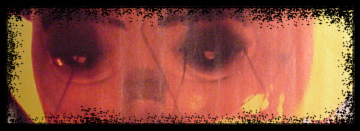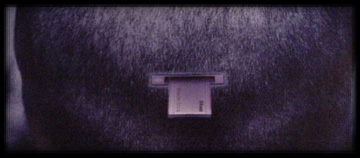

Science Fiction-"The
body's dream of becoming a machine."
J.G. Ballard, Project for a Glossary of the Twentieth Century
ENG 307U: Science Fiction,
Course 83188 CH 224
Grace L. Dillon, PhD; Office CH 117Q; 725-8144; dillong@pdx.edu
Office hours: TR noon-1 p.m. and by appointment.

Course Requirements
You will write dialogue journal responses and complete a take-home
final exam. The dialogue journal response work will be assigned at the session
before the work is discussed. They should be typed double-spaced 12 point
font 2-3 pages long (minimum) and can vary from analyzing critically the stories,
novels, films, or essays assigned to experimenting in a short story or film
script format with the styles, tropes, and techniques noted in the assigned
readings. These are helpful as start-ups in group conversations and discussions
and will be collected at the end of each session unless otherwise noted. These
are also helpful pre-writes for essay responses written for the final exam.
Your
final grade in the course will be computed as follows: class participation
including dialogue journal responses (70%) and final exam (30%).
Required Course Texts:
Supplemental
Texts:
Philip K. Dick’s Do Android’s Dream
of Electric Sheep
 Course
Schedule:
Course
Schedule:
WEEK
ONE:
M 6/23 Introduction
to course.
T 6/24 Cordwainer Smith’s “
W 6/25 Frederick Pohl’s “Day Million” (166), Harlan Ellison’s “Strange
Wine,” (350), Michael G. Coney’s “The Byrds”(501), Eileen Gunn’s “Stable Strategies
for Middle Management” (705) (all Norton) Biogenetic morphing and metamorphosis including intertextuality
of Kafka’s.
R 6/26 Philip K. Dick’s “Frozen Journey” (386), Michael
Swanwick’s “A Midwinter’s Tale” (733) (both Norton) and Jorge Luis Borges’ “The Circular Ruins” (Pck.). Clips
from Blade Runner and The
Twelve Monkeys. Time slippage,
reality slippage, and false memories.
WEEK
TWO:
M 6/30 Samuel Delaney’s “High Weir” (183), Octavia E. Butler’s
“Speech Sounds” (513), Mike Resnick’s “Kirinyaga” (733), and Diane Glancy’s
“Aunt Parnetta’s “Electric Blisters” (814) (all Norton). Racism, race, post-structuralism, and the Neo-Luddite impulse.
R 7/3 James Tiptree, Jr.’s “The Women
Men Don’t See” (255), Candas Jane Dorsey’s “(Learning About) Machine Sex”
(746) (both Norton), Ursula K. Le
Guin’s “The Rock That Changed Things,” Ted Chiang’s “Liking What You See: A Documentary,”and Joan Gordon’s “Yin and Yang
Duke it Out” (all Pck.). Overt and
covert forms of feminism.
 WEEK
THREE:
WEEK
THREE:
M 7/7 Samuel Delaney’s “Aye, and
T 7/8 Bruce Sterling’s “We See Things Differently”
( Norton 762), Neuromancer, chapter 4 and the Modern Panther operation, Ursula K.
Le Guin’s “Forgiveness Day,” and Paul Di Filippo’s “Little Worker” (all Pck.)
Science fiction tropes of terrorism.
W 7/9 China Mieville’s
The Scar. Be sure to have read the
novel in full by this date. Fantasy-epic
in science fiction and steampunk. Post-colonial theory , neo-tribalism, and
Hardt and Negri’s Empire.
R 7/10
China Mieville’s The Scar. Edward Said’s Exotic Other, Lacan’s “Mirror
Stage”, the Remades, techno-primitives, and the bio-mechanical.
 WEEK
FOUR:
WEEK
FOUR:
M 7/14 China Mieville’s The
Scar. Blade I and II. Vampirism,
dhampir, and vampire-cyborg consumption.
T 7/15 Philip K. Dick’s
“The Minority Report” (Pck.) Strange
Days and Minority Report referencing Enemy of the State and futuristic surveillance techniques.
W 7/16 The Animatrix
(2003), Spirited Away(2002), and Ringu
(1998). The Ghost in the Machine referencing
The Ghost in the Shell and Michael
Benedickt on the electronic city and cyberspace. (See also Lain series.)
R 7/17 Final Exam due.
introduction : syllabus : assignments : resources
copyright geared sun arts 2001